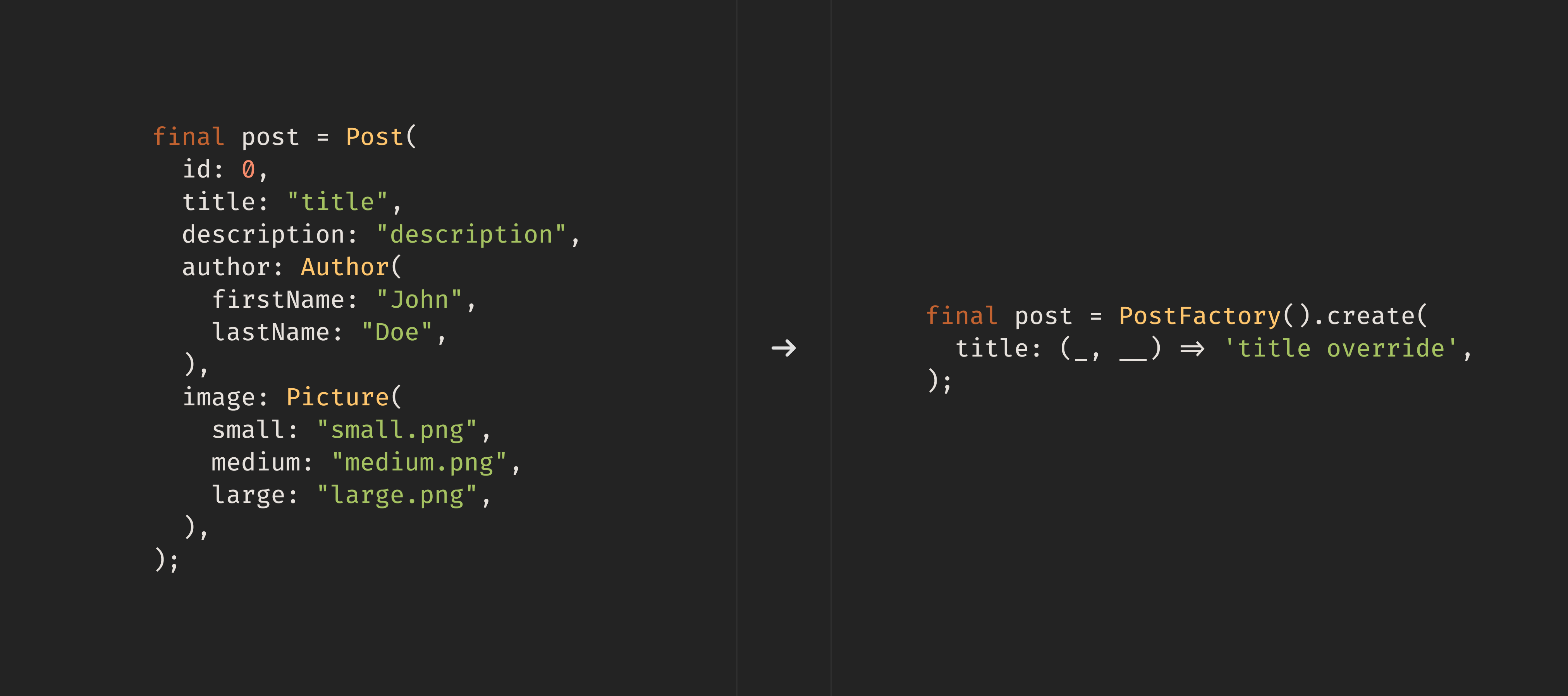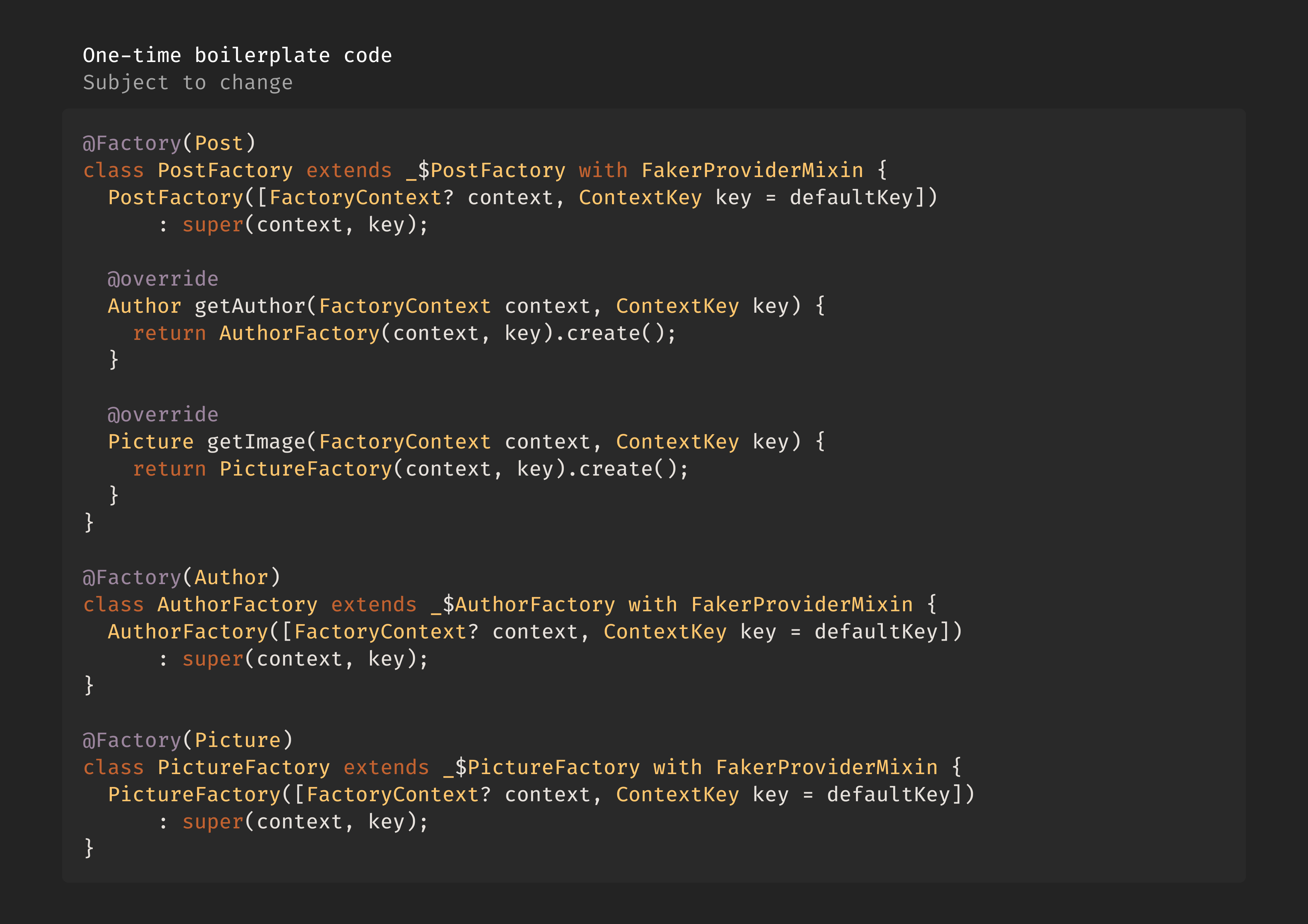Factory is created to help define easy to use model factories with predefined field assignment behaviour.
Mark target class with Factory annotation
class Item {
final int left;
final int right;
const Item(this.left, this.right);
}
@Factory(Item)
class ItemFactory extends _$ItemFactory with FakerProviderMixin {
ItemFactory([FactoryContext? context, ContextKey key = defaultKey])
: super(context, key);
}
void main() {
Item item;
// Create item with random [left] and [right] parameters
// provided by [FakerProvider].
item = ItemFactory()
.create(); // creates Item(left: {random value}, right: {random value})
// Provide explicit value of [left] parameter to constructor.
item = ItemFactory().create(
left: fromValue(10),
); // creates Item(left: 10, right: {random value})
// Depend on [left] parameter when building [right] parameter.
//
// For now order of variables is crucial.
// First parameters in constructor initialized earlier
// of any further parameters.
//
// If we try to depend on [right] when instantiating [left] it will be null.
item = ItemFactory().create(
left: fromValue(10),
right: (context, key) =>
context.read<ItemReadonlyBuilder, Item>(key.up()).getLeft()! + 10,
); // creates Item(left: 10, right: 10 + 10)
try {
item = ItemFactory().create(
left: (context, key) =>
context.read<ItemReadonlyBuilder, Item>(key.up()).getRight()!,
right: fromValue(10),
); // not creates item because left trying
// to initialize before right initialized.
} on Object {
print('failed to create item');
}
}

